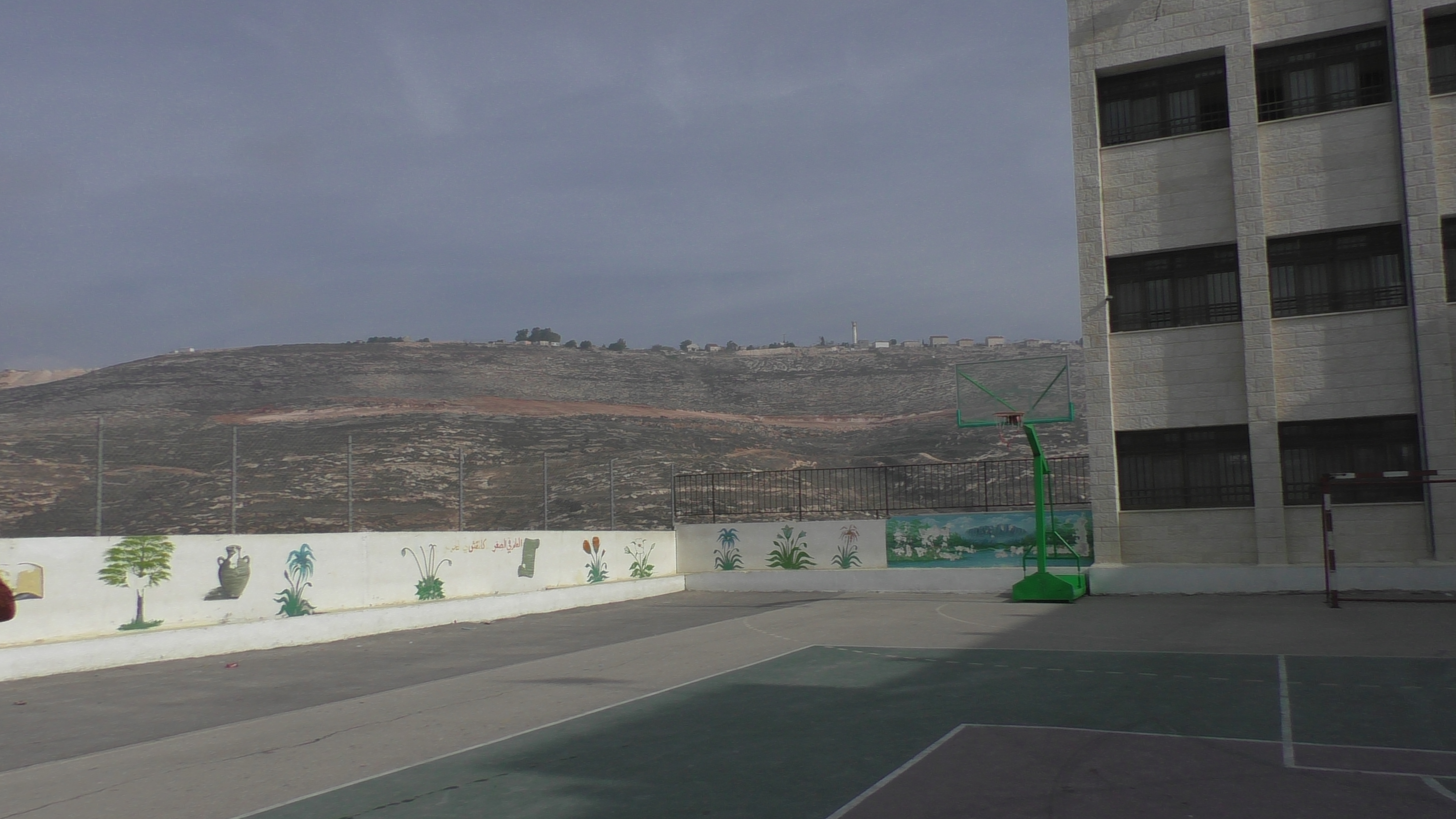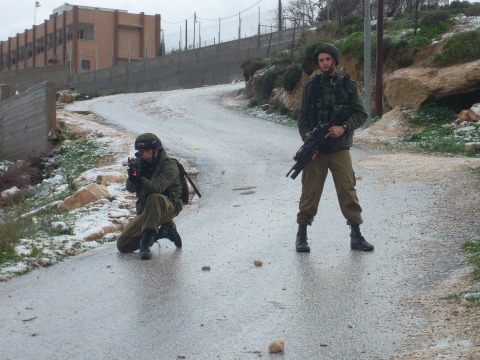Tag: Urif
-
Urif: the struggle to study
Urif, the 21th of November Urif is a small Palestinian village perched on the top of a hill, not far from Nablus. The view is beautiful and clear, overlooked by another scenic hill. A longtime resident tells us that before the 1980s, the locals used to go for walks and picnics in the area, but…
-
Israeli soldiers attack school In Urif
12th January 2014 | International Solidarity Movement, Nablus Team | Urif, Occupied Palestine At around 9:00am on Sunday 12th January 2014, students at the boys’ school in Urif, in Nablus district, were assaulted by Israeli soldiers firing tear gas grenades within the school grounds. Eleven soldiers from the nearby illegal settlement of Yizhar entered the grounds firing…
-
For Urif the price can never be high enough
15th June 2013 | International Solidarity Movement, Nablus Team | Urif, Occupied Palestine On Tuesday, 11th June, Israeli forces invaded the village of Urif and arrested nine youths between the ages of eighteen and twenty-seven. This incident is believed by the villagers to be related to the ‘price-tag’ settler attacks that the village suffered on…


